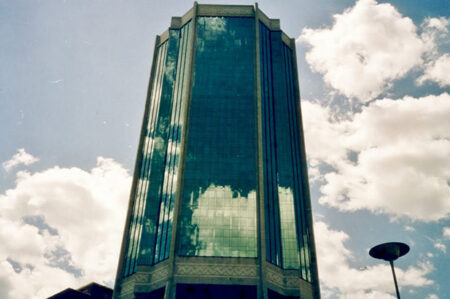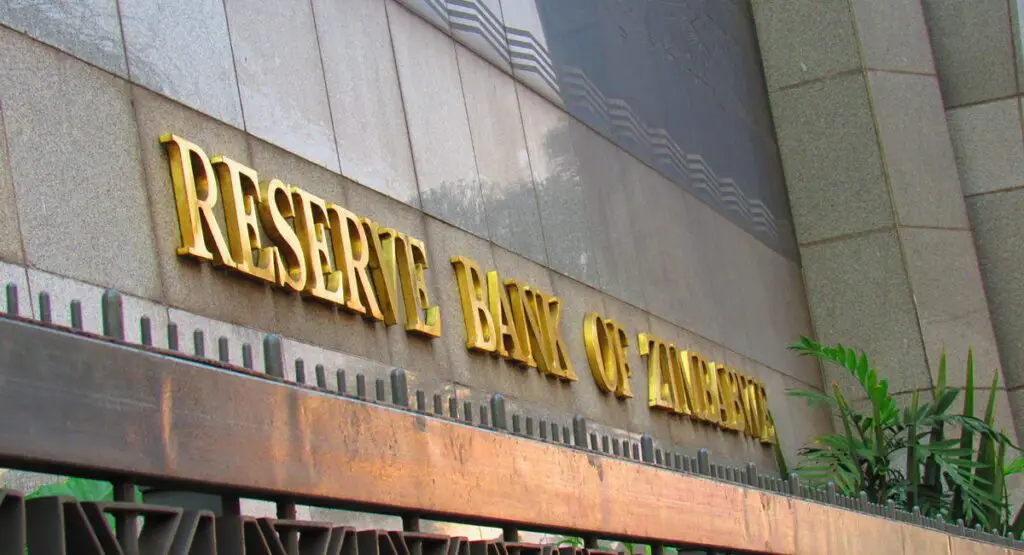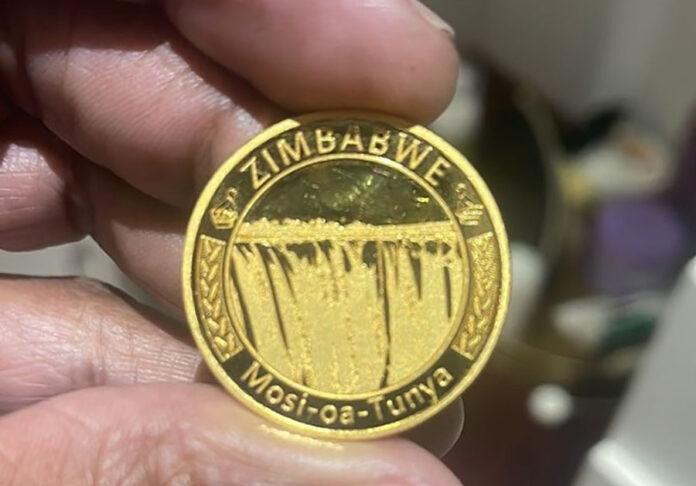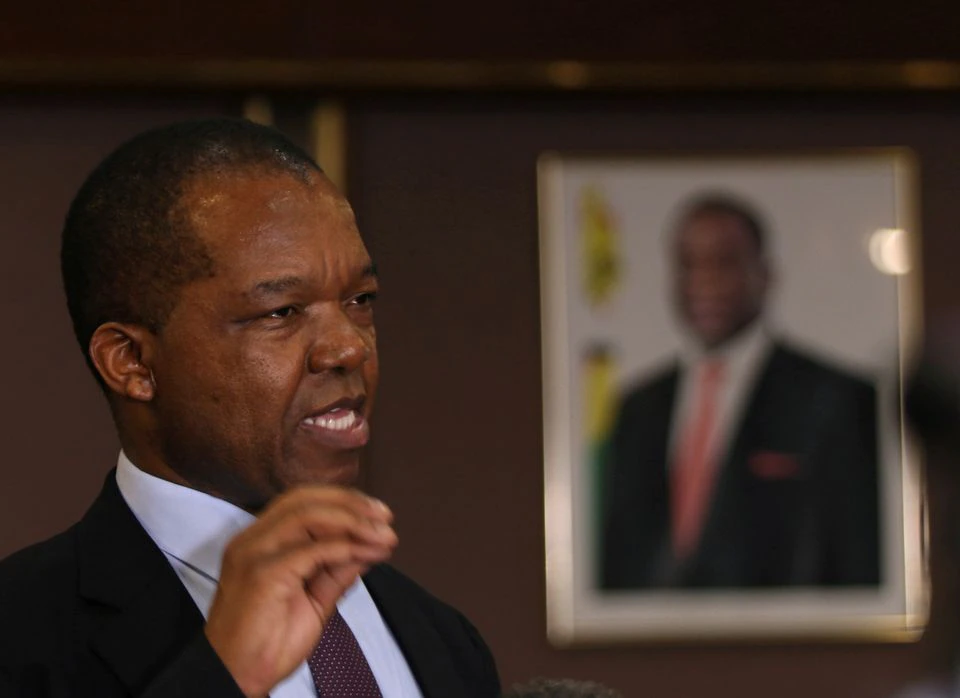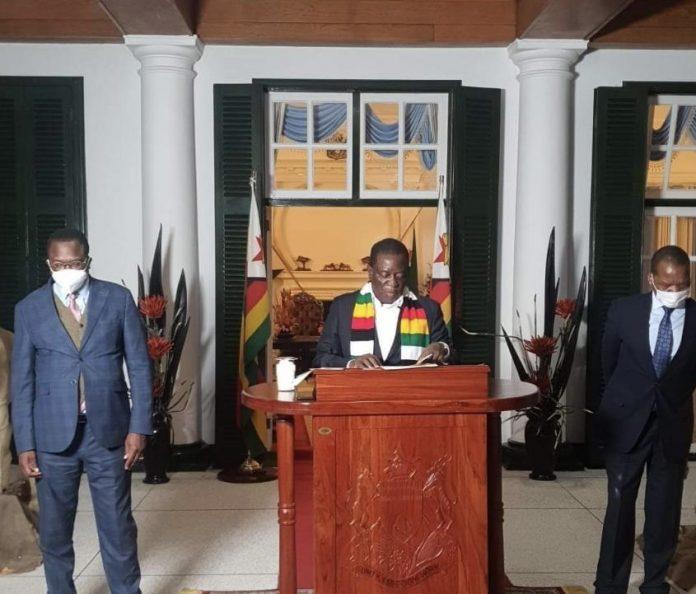- Refugee Crisis in Chad as War and Hunger in Sudan Drive Thousands Across Border
- Senegal 2050: A Blueprint for Economic Transformation
- Kenya’s banking sector corporate taxes hit $563.7 million despite industry profit drop
- South Sudan Crisis: How a Broken Pipeline Has Plunged Juba into Chaos
- Nigeria’s Largest Flour Mills to Invest $1 Billion in an Expansion and Restructuring Drive
- Ampersand triples production as Kenya’s e-moto market booms
- Vantage Capital concludes a $71 million deal with telco Camusat
- Mukuru’s mobile wallet debuts in Malawi, boosting global transfers and financial access
Browsing: RBZ
- The Reserve Bank of Zimbabwe last month began to loosen the tight monetary policy it had in place over the last 2 years to act against inflation.
- The hawkish stance of the central bank began to change when the RBZ announced that it would reduce interest rates by 50% to 150%.
- Zimbabwe's central bank's hawkish stance has resulted in a weakening economy and rising unemployment.
The Reserve Bank of Zimbabwe held the global record for highest interest rates, reaching a staggering 200%. The central bank has lowered this to 150% on the grounds that the inflationary conditions that required the significant increase have subsided. As is typical with hawkish monetary policy approaches, Zimbabwe's central bank's hawkish stance has resulted in a weakening economy and rising unemployment.
On 3 February 2023, the Zimbabwean monetary authorities issued the country's first Monetary Policy Statement via the central bank. Twice a year, the Reserve…
All sales of the gold coin, weighing 33.93g, by the agents would be subject to normal know-your-customer (KYC) principles in line with international best practices, which include the declaration of the source of funds.
“The gold coins shall be sold at the prevailing international price of gold plus 5% to cover the cost of production and distribution of the coin on a payment vs delivery basis,” the guidelines read in part.
“The bank shall publish the Mosi-oa-Tunya gold coin price by 0800 hours daily, which shall be based on the previous day’s London Bullion Market Association (LBMA) PM Fix plus the cost of producing the coin. The Mosi-oa-Tunya gold coins shall be sold with an accompanying bearer certificate with security features.”…
Among Zimbabweans, there is a clear preference for the use of the United States dollar over the local currency. This is to the extent that there are some government services which cannot be accessed without United States dollars.
There are also some basic household commodities and goods that one will need to pay for using hard currency and will not be able to purchase if they have the local currency. Following on the issue of the currency crisis is the fact that exporters are already heavily burdened with operating costs in United States dollars.
Regardless of whether it is an exporter or partial exporter, 40 per cent of all export proceeds generated by Zimbabwean-based exporters must be surrendered to the central bank. This is how the central bank has been funding its auction system to allocate foreign exchange to importers.
To be fair, the surrender requirements are not uniformly or …
The new coins will be available for sale from 25 July in local currency, US dollars, and other foreign currencies at a price based on the prevailing international price of gold and the cost of production.
“The gold coins will be available for sale to the public from 25 July 2022 in both local currency (ZW$) and United States Dollars (US$) (and other foreign currencies) at a price based on the prevailing international price of gold and the cost of production. The coins will be sold through the Bank and its subsidiaries, Fidelity Gold Refinery (Private) Limited and Aurex (Private) Limited, local banks, and selected international banking partners. Entities selling the coins shall be required to apply to Know Your Customer (KYC) principles,” read the statement.
Aurex Private, a subsidiary of the central bank, is involved in diamond cutting and polishing over and above the manufacturing of jewellery.…
Zimbabwe’s Central Bank said the increase in its policy rate to 200 per cent from 80 per cent will take effect from July 1 after annual inflation hit almost 192 per cent this month.
The benchmark interest rate was last raised to 80 per cent in April from a previous 60 per cent.
“The committee noted that the increase in inflation was undermining consumer demand and confidence and that, if not controlled, it would reverse the significant economic gains achieved over the past two years,” central bank governor Dr. John Mangudya said.
The latest figures from the Zimbabwe National Statistics Agency (ZIMSTATS) showed Saturday that the country’s annual inflation rate reached 191 per cent in June. A new blow to the purchasing power of Zimbabweans, stoking fears of a return to the 2008 hyperinflation period where savings were wiped out.…
According to an article by the Herald published on June 27, 2022, popular bullion coins include the American eagle, the Canadian Maple Leaf, the South African Krugerrand, the Isle of Man Gold Cat, the Australian Kangaroo, and the China Mint Panda Bear. They added that gold is a haven against inflation and a gold coin is made mostly of gold while most gold bullion coins are pure gold.
Meanwhile, in an article dated May 27, 2022, Bloomberg described the RBZ as the world’s most aggressive central bank. According to an article by Pindula News published on June 27, 2022, Zimbabwe’s former Finance and Economic Development Minister, Tendai Biti, said the Reserve Bank of Zimbabwe (RBZ) has outlived its usefulness and, therefore, should be abolished.
He made the remarks in response to a cocktail of measures introduced by the government to stabilize the economy. The main duty of the RBZ is …
President Mnangagwa said his Government is convinced that the recent exchange rate movements were driven by negative sentiments by economic agents as opposed to economic fundamentals.
“These negative sentiments have been propagating adverse expectations on future inflation and exchange rate movements, thus giving rise to artificially high demand for foreign currency as economic agents hedge against expected high inflation,” he added.
The Government listed measures that are expected to restore macroeconomic stability, support the current robust economic recovery trajectory, boost economic confidence, increase the appeal of the local currency, preserve value for depositors and investors and deal with market indiscipline.…
Large-scale miners supplied nine tonnes of gold over the time, according to FPR, the country’s lone buyer of gold, lagging output from small-scale producers, which delivered 13 tonnes.
Bullion output fell slightly to 1,38 tonnes in April, then jumped to 1,66 tonnes in May before soaring to 2,92 tonnes in June.
According to the study, July’s output was 2,82 tonnes before climbing to 3,17 tonnes and 3 tonnes in September and October.…
This means that these individuals would not be able to access financial services from the banks for a period of up to two years. The matter is still unfolding, and further developments will be advised in due course.
Zimbabwe, after attaining the highest inflation record in world history and especially for a country that was not involved in an armed conflict, took the decision to demonetize its defunct currency in favour of a basket of foreign currencies led by the United States dollar.
After a period of relative economic stability, the country took the decision to reintroduce the Zimbabwe dollar initially as a surrogate currency known as the Zimbabwe bond note. This was a response by the monetary authorities to a shortage of foreign currency and bank notes.…
- Zimbabwe did not have a parallel market for foreign exchange in the years running from 2009 to around 2016.
- Zimbabwe is heavily reliant on imported products and expends more foreign currency than it can afford.
- Demand pressure has contributed to the fall of the Zimbabwe dollar resulting in general inflation.
To dollarize or not to dollarize?
This question has robbed monetary authorities of sleep as the Zimbabwe dollar falls precipitously on the parallel market.
Zimbabwe did not have a parallel market for foreign exchange in the years running from 2009 to around 2016.
It all began with the introduction of a surrogate currency that was fallaciously pegged at par with the United States dollar. The authorities initially posited that the surrogate currency was supported by a loan facility extended by the Africa Export-Import Bank (Afrexim Bank).
This loan it was said underscored the parity of the currency. It did not …





